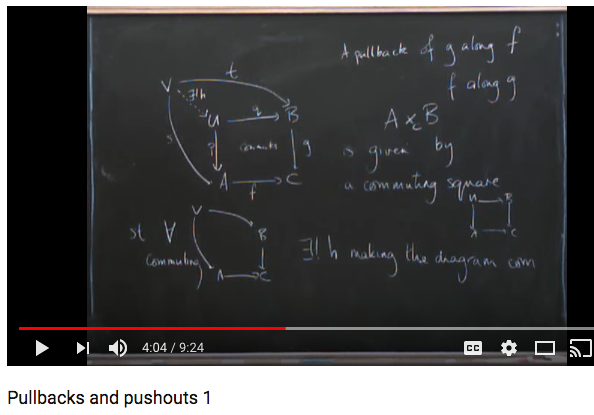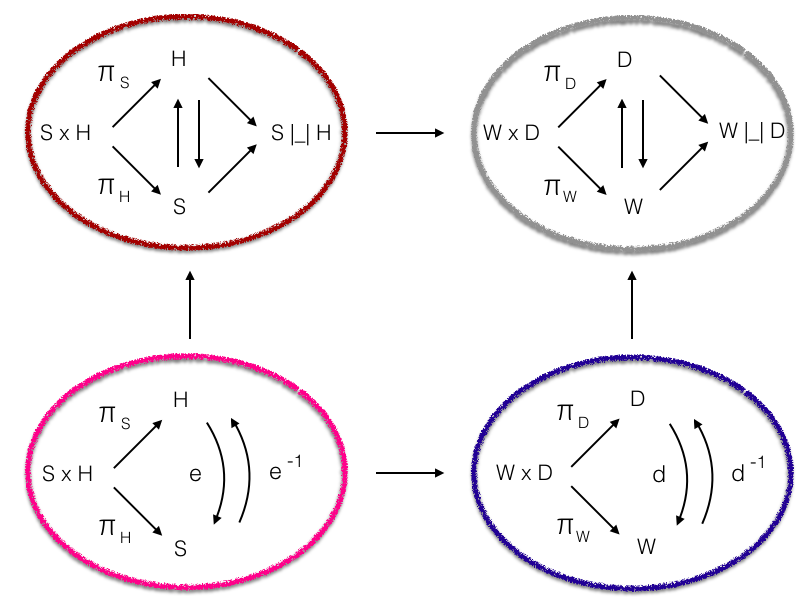(no subject)
Apr. 7th, 2022 10:36 pm“...he [Lincoln] managed polarities: they didn’t manage him.
...
Scale sets the ranges within which experience accrues. If, in evolution, edges of chaos reward adaptation; if, in history, adaptation fortifies resilience; and if, in individuals, resilience accommodates unknowns more readily than rigidity, then it stands to reason that a gradual expansion of edges better equips leaders for the unexpected than those that shock, leaving little time to adapt, or those inherited, which breed entitlement and arrogance, its companion.
..
Space is where expectations and circumstances intersect."
...
Tolstoy suggests, in the last pages of War and Peace, that the interdependence of time, space, and scale simultaneously reflects choice and necessity: the illusion of agency causes us to believe in free will even as inexorable laws deny the possibility. ”
---John Lewis Gaddis. “On Grand Strategy.”
We can model this as an interval and/or 10x pushout/pullback.
Creating a new scale, i.e. expanding the range, e.g. via a technology can be viewed as an equalizer.
(no subject)
Feb. 26th, 2022 12:42 pmThis sounds like a Rapunzel story with a Trojan Horse twist:
Jealousy, boredom, lust and deceit are punished here, with just one important exception — the Prince. He wins because in addition to being cunning and lustful he's also above the law. By comparison, in the Bath-sheba story, David was still the subject to Gods law, but only through the death of their first son. Moreover, their son Solomon inherited the kingdom through Bath-sheba scheming.
A certain merchant, who was addicted to jealousy, had a wife that was a model of beauty and loveliness; and of the excess of his fear and jealousy of her, he would not abide with her in any town, but built her a pavilion without the city, apart from all other buildings. And he raised its height and strengthened its doors and provided them with curious locks; and when he had occasion to go into the city, he locked the doors and hung the keys about his neck....
So he called up one of his pages, who brought him ink-case[203] and paper and wrote her a letter, setting forth his condition for love of her. Then he set 168it on the pile-point of an arrow and shot it at the pavilion, and it fell in the garden, where the lady was then walking with her maidens...
...
came under the window and said to her, “Let me down a thread, that I may send thee this key; which do thou take and keep by thee.” So she let down a thread and he tied the key to it.
...
So the Prince returned to his palace and fixing the padlock, the key whereof he had given the lady, on a chest he had by him, entered therein. Then the Wazir locked it upon him and setting it on a mule, carried it to the pavilion of the merchant.
...
she hurried the Prince back into the chest, but, in her confusion, forgot to lock it. .... So they took up the box by the lid, whereupon it flew open and lo! the Prince was lying within. When the merchant saw him and knew him for the King’s son....
“Go in, thou, and take the King’s son; for none of us may lay hands on him.” So the Minister went in and taking the Prince, went away with him. As soon as they were gone, the merchant put away his wife and swore that he would never marry again.
-- 591st & 592nd nights. The King's Son and the Merchant's Wife.
--- https://www.gutenberg.org/files/54525/54525-h/54525-h.htm#c167
Jealousy, boredom, lust and deceit are punished here, with just one important exception — the Prince. He wins because in addition to being cunning and lustful he's also above the law. By comparison, in the Bath-sheba story, David was still the subject to Gods law, but only through the death of their first son. Moreover, their son Solomon inherited the kingdom through Bath-sheba scheming.
(no subject)
Jan. 11th, 2019 01:42 pm“...Japan, Korea, Taiwan and China perfected ways to marry subsidies and protection for manufacturers – so as to nurture their development – with competition and ‘export discipline’, which forced them to sell their products internationally and thereby become globally competitive. This overcame the traditional problem with subsidy and protection policies, whereby entrepreneurs pocketed financial incentives but failed to do the hard work of producing competitive products. Firms were not able to hide behind tariff and other barriers and sell only to a protected domestic market because protection, subsidies and credit were conditioned on export growth. Firms that did not meet the export benchmark were cut off from state largesse, forced to merge with more successful companies, or occasionally even bankrupted.”
Joe Studwell. “How Asia Works.”
- On the one hand, you want to subsidize(finance) and protect promising unprofitable companies, so that they overcome the initial biz/tech handicap;
- On the other hand, you don't want to subsidize and protect unprofitable companies, so that they grow inefficient and require either direct or indirect subsidies/tariffs.
This dilemma is inherent in startups as well, and it's addressed through a similar (isomorphic!) VC solution. It also helps understand what enabled Amazon to solve the Innovator's Dilemma.
BTW, it shows that Russian industrial policy is doomed because of sanctions imposed on the country due to Putin's stupid foreign policy.
Quote of the Day: reinventing love
Dec. 22nd, 2018 02:37 pm“Stoicism regards the fear of death as the greatest obstacle to the happy life (likewise in Buddhism).”
In simple terms there is an apparently insurmountable contradiction between love, which leads to attachment, and death, which leads to separation.
...
The entire originality of the Christian message resides in ‘the good news’ of literal immortality.
...
If humans are immortal as long as they obey the commandments of God and if we suppose that this immortality is not merely compatible with earthly love but possibly one of its consequences, then why deprive ourselves? Why not become attached to our nearest and dearest, if Christ promises that we shall be reunited after our biological death?
Thus, between ‘love-as-attachment’ and love as simple universal compassion towards others, a place opens up for a third form of love: the love ‘in’ God of creatures who are themselves eternal. ”
--- Luc Ferry. “A Brief History of Thought."
Made my day
Feb. 9th, 2018 08:55 pm
https://youtu.be/XGysPJvCXOc
For some reason, understanding adjoints helped me better understand products, coproducts, pullbacks and pushouts. Maybe it's because of a specific application that I can play with to test various concepts against a version of relevant reality.
upd. also see https://youtu.be/BqRkULEhG40?t=6m15s
Technology as arbitrage
Jan. 7th, 2018 02:13 amModern science strives to be objective, i.e. anti-anthropocentric. Modern business strives to be anthropocentric. Technology is both anti- and anthropocentric because it uses the objective to create/satisfy the subjective. We can probably model it as a pullback rather than a direct arrow from science to business.

Biz (B) -> Life (D)
Sci (C) -> Life (D)
Tech (A) -> Biz (B)
Tech (A) -> Sci (C)

Biz (B) -> Life (D)
Sci (C) -> Life (D)
Tech (A) -> Biz (B)
Tech (A) -> Sci (C)
Single issue politics as a terminal object
Jul. 1st, 2017 04:24 pmThanks to bamalip I'm now learning about Subobject Classifier.

Let's play with it a bit. If we define a single issue as the whole purpose of American politics, then we can consider it to be a terminal object *. For example, when we declare "jobs for Americans" the ultimate goal for the president anybody (∀X) who is for "jobs" satisfies the Classifier Ω and is a patriotic American U. Furthermore, if we structure the debate as a Boolean Topos: "jobs vs environment", or "jobs vs self-driving cars", or "jobs vs immigration", or "jobs vs China", or "jobs vs trade", or "jobs vs Amazon", etc., everybody on the other side of "jobs" is the enemy. The simplified, "terminal" structure of the debate defines the outcome and political polarization.
upd. On a somewhat related note, the sex vs gender debate has a similar structure. Category "sex" has a terminal object, e.g. a definite chromosome characteristic, therefore it can be easily understood as a Boolean Topos. Category "gender" doesn't have a terminal object, therefore people get confused.

Let's play with it a bit. If we define a single issue as the whole purpose of American politics, then we can consider it to be a terminal object *. For example, when we declare "jobs for Americans" the ultimate goal for the president anybody (∀X) who is for "jobs" satisfies the Classifier Ω and is a patriotic American U. Furthermore, if we structure the debate as a Boolean Topos: "jobs vs environment", or "jobs vs self-driving cars", or "jobs vs immigration", or "jobs vs China", or "jobs vs trade", or "jobs vs Amazon", etc., everybody on the other side of "jobs" is the enemy. The simplified, "terminal" structure of the debate defines the outcome and political polarization.
upd. On a somewhat related note, the sex vs gender debate has a similar structure. Category "sex" has a terminal object, e.g. a definite chromosome characteristic, therefore it can be easily understood as a Boolean Topos. Category "gender" doesn't have a terminal object, therefore people get confused.
A whole zoo of duck-rabbits
Mar. 16th, 2017 02:10 am
Motif – a pattern that can be interpreted and reinterpreted in different ways over and over again.
Source: Paul Gulino. p. 45.



